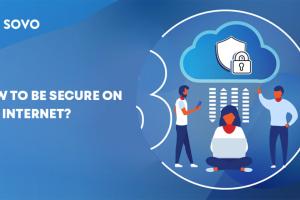Mastering Security: Your Comprehensive Guide to Staying Safe in a Digital World

-
Quick Links:
- Understanding Security
- The Importance of Personal Security
- Digital Security Basics
- Physical Security Measures
- Home Security Tips
- Workplace Security
- Cybersecurity Best Practices
- Case Studies in Security
- Expert Insights on Security
- FAQs
Understanding Security
Security, in its broadest sense, refers to the measures taken to protect individuals, organizations, and assets from harm, theft, or damage. In today’s interconnected world, the concept of security has evolved to encompass both physical and digital domains. Understanding the different aspects of security is the first step toward ensuring your safety and the safety of those around you.
The Importance of Personal Security
Personal security is crucial for maintaining peace of mind and protecting your well-being. Whether you are at home, at work, or online, being aware of your surroundings and taking proactive steps to secure yourself can mitigate risks and prevent potential threats.
Why Personal Security Matters
- Protection from Crime: Personal security measures can help reduce the risk of becoming a victim of crime.
- Peace of Mind: Knowing that you have taken steps to secure yourself can significantly reduce anxiety.
- Increased Awareness: Focusing on security encourages individuals to be more aware of their surroundings and potential threats.
Digital Security Basics
In a world where most of our activities take place online, digital security has become paramount. From protecting personal information to secure online transactions, understanding the basics can go a long way in safeguarding your digital life.
Key Concepts in Digital Security
- Passwords: Use strong, unique passwords and consider a password manager.
- Two-Factor Authentication: Enable 2FA wherever possible for an extra layer of security.
- Regular Updates: Keep software and devices updated to protect against vulnerabilities.
Physical Security Measures
Securing your physical environment is just as important as digital safety. Implementing effective physical security measures can protect you and your property from theft and harm.
Practical Physical Security Tips
- Install Security Cameras: Consider surveillance systems for both home and business.
- Use Good Locks: Invest in quality locks for doors and windows.
- Be Aware of Your Surroundings: Always stay vigilant in unfamiliar places.
Home Security Tips
Your home is your sanctuary, and protecting it should be a priority. Here are essential tips to enhance your home security:
Home Security Strategies
- Lighting: Use motion-sensor lights around your property.
- Secure Entry Points: Reinforce doors and windows, and use deadbolts.
- Neighborhood Watch: Get involved in community safety initiatives.
Workplace Security
Workplaces can be vulnerable to various threats, including theft, data breaches, and harassment. Implementing security measures in the workplace is crucial for everyone’s safety.
Enhancing Workplace Security
- Access Control: Use badges or biometric systems to control who enters the premises.
- Cybersecurity Policies: Establish protocols for handling sensitive information.
- Training: Provide employees with security awareness training to recognize potential threats.
Cybersecurity Best Practices
With the rise of cyber threats, adopting cybersecurity best practices is essential. Here’s how to protect yourself online:
Effective Cybersecurity Measures
- Regular Backups: Keep backups of important data to recover from cyber incidents.
- Phishing Awareness: Educate yourself on recognizing phishing attempts.
- Secure Internet Connections: Use VPNs and secure networks for online activities.
Case Studies in Security
Real-world incidents highlight the importance of security measures. Here are a few case studies that emphasize various aspects of security:
Case Study 1: The Target Data Breach
In 2013, Target experienced a massive data breach that compromised 40 million credit and debit card accounts. The breach occurred due to inadequate security measures, showcasing the need for robust cybersecurity practices.
Case Study 2: The Importance of Home Security Systems
A study by the University of North Carolina found that homes without security systems are 300% more likely to be burglarized. This statistic underscores the effectiveness of security measures in deterring crime.
Expert Insights on Security
Industry experts emphasize the importance of a multi-layered security approach:
“Security isn’t just about preventing incidents; it’s about creating an environment where risks are minimized and threats are managed effectively.” - Jane Doe, Security Consultant.
FAQs
What is personal security?
Personal security refers to the measures and practices individuals take to protect themselves from harm, theft, or other threats.
How can I improve my digital security?
Use strong passwords, enable two-factor authentication, and keep your devices updated regularly.
What are some basic home security tips?
Implement strong locks, use security cameras, and ensure proper lighting around your property.
What should I do if I suspect a cyber attack?
Disconnect from the internet, avoid accessing sensitive accounts, and seek professional help to assess and mitigate the damage.
How can businesses enhance workplace security?
Implement access control measures, conduct regular training, and establish cybersecurity protocols.
Are security systems worth the investment?
Yes, studies have shown that homes with security systems are less likely to be targeted by burglars.
What is two-factor authentication?
Two-factor authentication is a security process that requires two forms of identification before granting access to an account.
Can I protect my identity online?
Yes, use strong passwords, avoid sharing personal information, and be cautious of phishing scams.
What are the most common types of cyber threats?
Common threats include phishing, malware, ransomware, and data breaches.
How can I stay informed about security threats?
Follow cybersecurity blogs, subscribe to newsletters, and engage with community safety initiatives.
Conclusion
In today's ever-evolving landscape of threats, understanding how to be secure—both online and offline—is more important than ever. By implementing proactive measures, staying informed, and fostering a culture of security awareness, you can significantly reduce risks and enhance your overall safety.